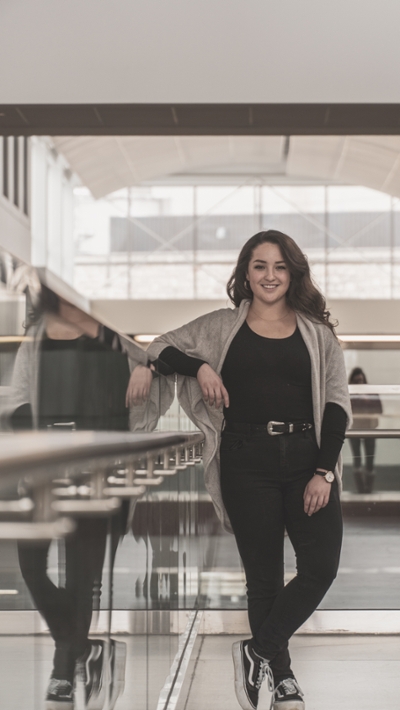
Patience and Perseverance Pays Off
Aurora Lepe Zepeda has found that patience and perseverance are a fundamental part of the learning process. As the winner of three awards valued at $1200 at the 2019 USSU Undergraduate Project Symposium, Lepe Zepeda has advice worth reading.
I believe research requires that you pause, think, think again and then continue. It is important to keep in mind that sometimes experiments lead to unexpected or undesired results that can be discouraging. However, I’ve found that it is important to think of scientific development as universal teamwork. Overall, every single step that you take in your laboratory, even if it is in the wrong direction, gets the whole scientific community closer to an answer.
I decided that I wanted to get involved in research as a second-year Microbiology and Immunology undergraduate student. I have always been fascinated by microbial physiology, in particular, antimicrobial resistance and superbugs. During my first two years of classes, I had no previous research experience and the process to find an opportunity to work in research seemed overwhelming and intimidating. Basically, I did not feel ready to create a scientific project that was based on real laboratory observations.
But, despite my fear, I chose to pursue a research project because I believe that undergraduate research is a valuable experience that provides you with a fantastic opportunity to learn, grow, and develop many transferable professional skills. It also introduced me to explore professional pathways that I am interested in and that I would consider pursuing in the future.
During my project, I was inspired and motivated by a group of intellectual women that work everyday to move science forward. The close guidance of my supervisor Dr. Jo-Anne Dillon, distinguished professor from the Department of Biochemistry, Microbiology, and Immunology, and the constancy of both post-doctoral fellow Nidhi Gohil and lab mate Kristen Mitzel were fundamental to my development and improvement in the laboratory environment. I was consistently offered an excellent balance between challenge and support that allowed me to learn, develop and improve many skills.
In addition to building skills, I’ve taken up opportunities to present my project results in two different events at the University of Saskatchewan. During the 2018 Fall Poster Day hosted by the College of Medicine, I had the opportunity to present my project alongside other students that were also recipients of the Office of the Vice-Dean Research Biomedical Awards. In this event, I was awarded the Second Place in Microbiology and Immunology category. Next, I presented the results of my summer research project at the 2019 USSU Undergraduate Project Symposium held in January. Many University of Saskatchewan Students presented the results of projects in a large variety of research fields. It was an honour to receive three awards: First Place in the Science and Engineering category, the Signature Research Area Award, and the Mayor and University President's Award in City Building.
At these events, I have found inspiration in seeing so many young scientists passionate about their work and about the importance of their research. It is also motivating to feel how the efforts of scientific research are recognized and applauded in institutional and college spaces.
There is a big misconception that research done by undergraduate students is not ‘real’ research and that only top research institutions matter when it comes to scientific contributions. In reality, undergraduate research gave me the opportunity to learn while contributing knowledge and impacting my community. Work done by undergraduate researchers is relevant and can have significant contribution to science. Working in such a professional and supportive environment as the Vaccine and Infectious Disease Organization (VIDO-Intervac), and as part of the OVDR Biomedical Research group, has allowed me to consider applying to a research graduate program after I finish my undergraduate degree.

